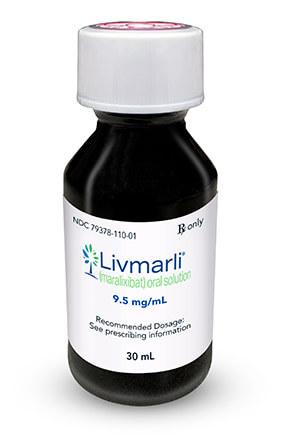Livmarli Disease Interactions
There are 2 disease interactions with Livmarli (maralixibat).
IBAT inhibitors (applies to Livmarli) liver disease
Major Potential Hazard, Moderate plausibility.
Liver function test (LFT) abnormalities included ALT, AST, and/or total/direct bilirubin elevations and occurred in patients given maralixibat. Maralixibat was not tested in patients with clinically significant portal hypertension, decompensated cirrhosis, and/or hepatic decompensation. Baseline LFTs should be obtained prior to starting treatment, and levels should be monitored throughout treatment. Dose adjustments should be considered in patients who develop LFT abnormalities in the absence of alternative etiologies. Treatment discontinuation should be considered in patients with persistent or recurrent LFT abnormalities.
References
- (2021) "Product Information. Livmarli (maralixibat)." Mirum Pharmaceuticals, Inc.
IBAT inhibitors (applies to Livmarli) fat soluble vitamin deficiency
Moderate Potential Hazard, Moderate plausibility. Applicable conditions: Vitamin A Deficiency, Vitamin K Deficiency, Vitamin D Deficiency
Maralixibat may affect fat-soluble vitamin (FSV [e.g., vitamins A, D, E, K]) absorption. Baseline FSV levels should be obtained prior to starting treatment, and levels should be monitored throughout treatment. Patients should undergo supplementation with FSV if a deficiency is diagnosed, and treatment discontinuation should be considered in patients with persistent or worsening FSV deficiency despite supplementation.
References
- (2021) "Product Information. Livmarli (maralixibat)." Mirum Pharmaceuticals, Inc.
Livmarli drug interactions
There are 32 drug interactions with Livmarli (maralixibat).
Livmarli alcohol/food interactions
There is 1 alcohol/food interaction with Livmarli (maralixibat).
More about Livmarli (maralixibat)
- Livmarli consumer information
- Check interactions
- Compare alternatives
- Pricing & coupons
- Drug images
- Side effects
- Dosage information
- During pregnancy
- FDA approval history
- Drug class: miscellaneous GI agents
- Breastfeeding
- En español
Related treatment guides
Drug Interaction Classification
| Highly clinically significant. Avoid combinations; the risk of the interaction outweighs the benefit. | |
| Moderately clinically significant. Usually avoid combinations; use it only under special circumstances. | |
| Minimally clinically significant. Minimize risk; assess risk and consider an alternative drug, take steps to circumvent the interaction risk and/or institute a monitoring plan. | |
| No interaction information available. |
Further information
Always consult your healthcare provider to ensure the information displayed on this page applies to your personal circumstances.


